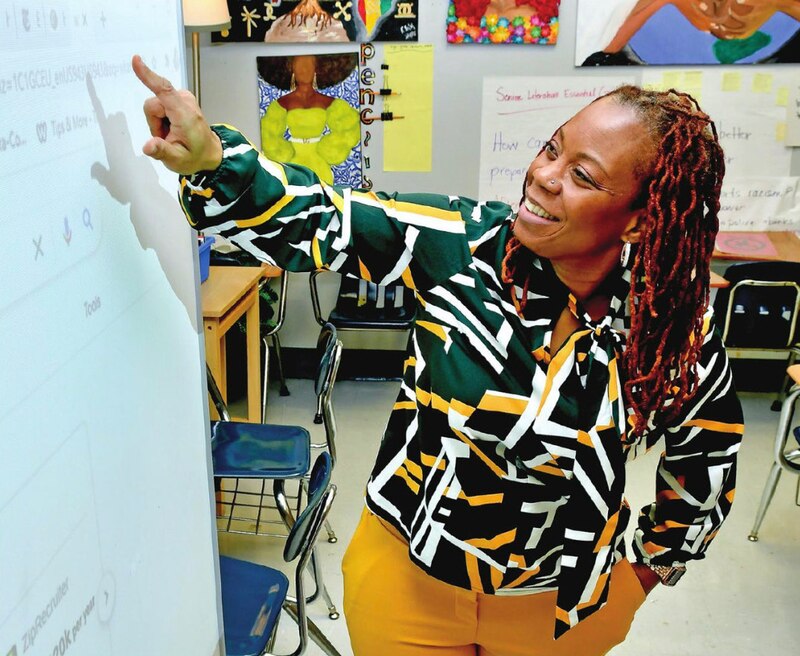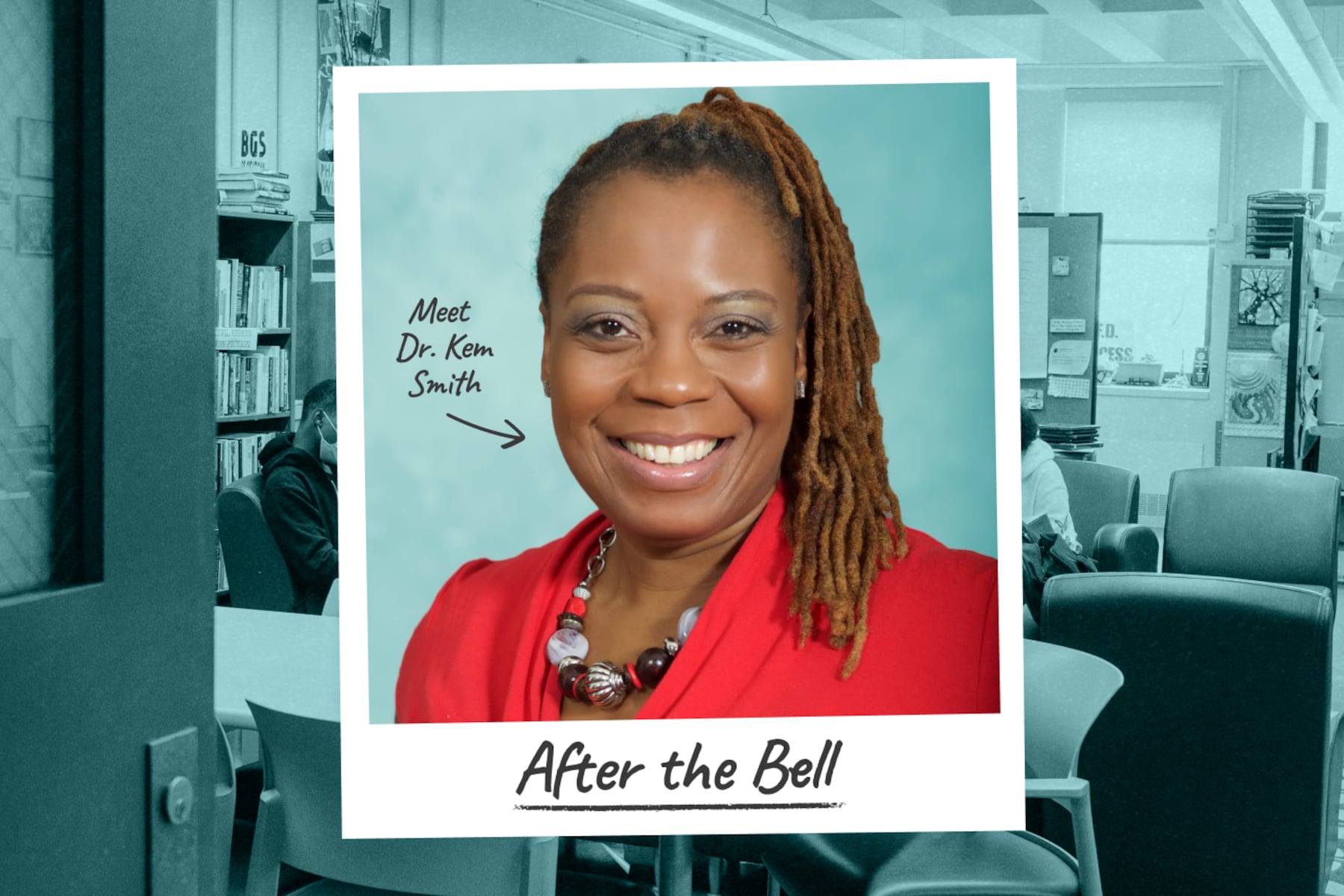Teachers, you are doing better than you think.
Along with teaching through these unprecedented pandemic times with so many impacted by COVID-19, consider the student lives you have touched. You survived countless professional development hours, adapted to online environments, taught hybrid classes, conquered the curriculum while facing chronic absenteeism, and prepared students for standardized tests. Your resilience is incredible.
I want to acknowledge your strength first because I have to admit that I am also worried. As a 20-year veteran teacher with preschool through college-level experience, I have witnessed many shifts in education as both a student and teacher.
I have heard your doubts about your practice due to high-stakes testing, the ability to meet the social and emotional needs of your students, and the need to understand technological changes that impact learning. I have seen you question your core values. I have lived your physical and mental struggles. And, I have seen you work for gift cards and smiles for far too long. I will be honest: too many of you are barely hanging on.
There is too much work to be done and too many students who need us. Yet, the relationships you have with students are worth today’s sacrifice. As a teacher, you have the opportunity to nurture the curious nature of students. You teach them how to become critical and creative thinkers. One day, because of your efforts they will become lifelong learners. Let’s get back to what you love about teaching.
“After the Bell” is my new advice column in which we teachers can explore ways to reconnect with the magic of teaching without losing our marbles. I decided to write this column for the teachers who are considering walking away from their calling.
I know how difficult this work can be. Trust me. I tried quitting.
When I had 10 years of experience, I decided to leave the profession to be a full-time mom but also because I was fed up. Ten years of working with increasing class sizes, ever-changing testing requirements, Response to Interventions, Individualized Education Programs, a new administration team, and supporting students with learning gaps all while nursing a newborn was exhausting. I left for five years and promised myself I’d never return.
Yet, during that time, I missed teaching. I missed the positive relationships I developed with my students and co-workers. I missed the spontaneity of kids and the autonomy of creating engaging units.

That eventually brought me back to the classroom in 2014, where I found my passion again. Only now, I was more fueled to make a difference in the lives of students because I recognized the 21st-century skills needed to survive beyond the classroom. I was determined to impart those skills to my students. When I returned to the classroom, the first lesson I learned was that neither the gift nor the calling goes away because you leave. I even wrote an unpublished book, “Why I Quit Teaching and Why You Don’t Have To.”
Teachers, you don’t have to quit.
The state of education today may cause you to question your calling. Universal education-related issues such as virtual learning, poor working conditions, and testing and teacher evaluation systems make the work of being an educator difficult. However, what you do each day for students’ future and the future of our country is too important.
I believe teaching is a calling. Some people are aware of this calling early in life. For others, it takes time for them to recognize their gift. I am part of the latter group.
I began the journey to become a teacher in 1997 while working in insurance. I took a spiritual gifts test at church and the results overwhelmingly pointed toward teaching as my gift. I worked at the office during the day and finished my bachelor’s in business administration at night. After graduation, I immediately enrolled in graduate school, intending to become a teacher. I left my insurance job and began to substitute teach. I did that for three years in many classrooms, multiple buildings, and across three different St. Louis County school districts until I finished my master’s in education.
Then, I landed my first full-time teaching assignment for a fifth-grade classroom in 2001. In the years that followed, I taught sixth, seventh, eighth, 10th, 11th, and 12th. Then, I began teaching adjunct college-level courses. Early in my teaching career, I also discovered my passion for writing. I returned to school and earned a master’s degree in creative writing while teaching during the day.
Since 2016, I have been teaching 12th grade English. There was a gap in my understanding of higher education and how I could help my students prepare for the rigors of college. I returned to school and earned my doctorate in higher education administration leadership.
What keeps me going? Every day, I experience the joy of watching learning happen. My secret confession is that I am a learning junkie. Every time I have a down moment, I use it to soak up some form of information. Not to store it, but to share it with those who will benefit.
A few years ago, I accompanied a group of students on a college visit a few hours from our hometown. We were on lunch break when I heard my name called above the crowd noise. I turned and was immediately enveloped in a hug. A former student had found me. She exclaimed she could not believe it was me. She was with her friends and told them who I was. She explained how she loved my eighth grade English class so much and that I was the reason she had chosen to major in journalism.
Her excitement made me realize I was on the right path. The work I was doing impacted my students for a lifetime. The energy of hundreds of students eager to learn and hoping for someone to point them to their life’s purpose helps me persevere. It has been wonderful to watch children I’ve taught in preschool graduate high school and say, “thank you.”
Even though the pandemic’s high absenteeism rates negatively impacted student-teacher relationships, I received a message from a student on May 23 that touched my heart. The student wrote:
“You don’t know how much you have helped me this school year. I wish I could express how hard it is trying to break generational curses and still be child-like. Having you as a mentor, I feel, was God’s plan, and I needed you to help guide me on the right path!”
Before the summer break, I learned this student had lost three close loved ones this year — one from COVID-related complications, another from gun violence, and one from suicide — and the student was the one who found the person’s body.
Teaching is more than content. Our students face unknown struggles and rely on us to see them as individuals who require compassion even when they are unable to return the emotion.
In this column, I will be intentional about finding the joy in teaching. Your mental health will be the main focus. While I am not a psychologist, counselor, or mental health expert, I will consult with those trained to support the varied needs of educators.
There is so much good in this world. Choose to see that today. Choose to be kind. Choose to love and if you need support, read this column.
As you reflect on the last school year and prepare for 2022-23, send me your questions, testimonials, and stories.
Starting today, I will read them all and respond to your questions every week.
Dr. Kem Smith is Chalkbeat’s first advice columnist. She is a full-time 12th grade English teacher in St. Louis, Missouri. Submit your question via this submission form, and subscribe to How I Teach to receive her column in your inbox.







